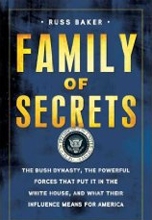[Obama on Iraq] Let me be clear. Ending this war is not going to be easy. We have to ensure that our interests in a stable Iraq are met and make sure that our troops are secure. [We Americans are so “exceptional” that, when Iraqis are willing to put our interests above their own, and they’ve stopped resisting our troops, we’ll leave? No wonder God loves us best!]
[Obama, again.] My plan to end this war will finally put pressure on Iraq’s leaders to take responsibility for their future. Because we’ve learned that when we tell Iraq’s leaders that we’ll stay as long as it takes, they take as long as they want.
Cost to U.S. Taxpayers for U.S. Aid to Israel:
1949 to November 1, 1997
Grand Total of U.S. Aid to Israel = $84,854,827,200
Interest Paid by U.S. = $49,936,680,000
Total Cost to U.S. Taxpayers = $134,791,507,200
Palestinian Centre for Human Rights [PCHR]: Weekly Report on Israeli Human Rights Violations in the Occupied Palestinian Territory
from the Palestinian Chronicle: The key error that started this conflict was that the destiny of one people was chosen by another. The West imposed its own vision upon the natives, without ever consulting the Palestinian people.
The mass migration of European Jews into British Palestine was done without the consultation of the native Palestinian people. The partition of Palestine that awarded the majority of arable and economically fruitful land to a minority of immigrants was done without the consultation of the Palestinian people, who have dwelt on this land for thousands of years. And there the conflict began.
The main quibble Arabs have with the West is that nothing in the region was determined by them. The states, the borders, the dictators, and the monarchs were all carved out and hand picked by Western leaders. This is the root cause of the grand divide between Islam and the West, and the drive for extremist ideologies. To turn around and dictate how a future Palestine is to function is repeating the same mistakes of the past. And the same mistakes will reap the same consequences.
To solve this conflict, the West must listen to the Palestinian people. Listen to their sentiments, to their deep feeling of injustice, and their resentment of it. Hamas is not merely an Islamist movement, but representative of 60 years of Palestinian resistance to everything unjust that has been imposed on them.
***
from Foreign Policy in Focus: Much has been made in the U.S. media of the Syrian and Iranian weaponry used in the escalating violence in Israel and Lebanon. There has been no parallel discussion of the origin of Israel’s weaponry, the vast bulk of which is from the United States. For more than 30 years, Israel had been the largest recipient of U.S. foreign assistance.
Over the past decade, the United States has transferred more than $17 billion in military aid to this country of just under 7 million people. Israel is one of the United States’ largest arms importers. Between 1996 and 2005 (the last year for which full data is available), Israel took delivery of $10.19 billion in U.S. weaponry and military equipment. From 2001 to 2005, Israel received $10.5 billion in Foreign Military Financing and $6.3 billion in U.S. arms deliveries. The aid figure is larger than the arms transfer figure because it includes financing for major arms agreements for which the equipment has yet to be fully delivered. The most prominent of these deals is a $4.5 billion sale of 102 Lockheed Martin F-16s to Israel.
Given the billions of dollars of aid it provides to Israel every year and the central role of U.S.-supplied weaponry in the Israeli arsenal, the United States has considerable leverage that it could use to promote a cease fire in the current conflict before more Israeli and Lebanese civilians are killed and displaced.
***
[On a more uplifting note (thankfully, we are still able to waste money without spilling blood): it’s good to be king of the post office! rb] Postmaster General John E. Potter recently warned that economic times are so dire the U.S. Postal Service may end mail delivery one day a week and freeze executive salaries. But his personal fortunes are rising thanks to 40 percent in pay raises since 2006, a $135,000 bonus last year and several perks usually reserved for corporate CEOs. The changes brought Mr. Potter’s total compensation and retirement benefits to more than $800,000 in 2008.


